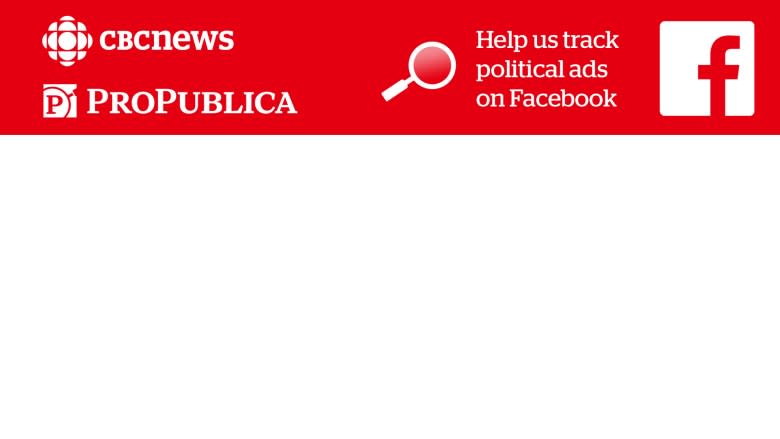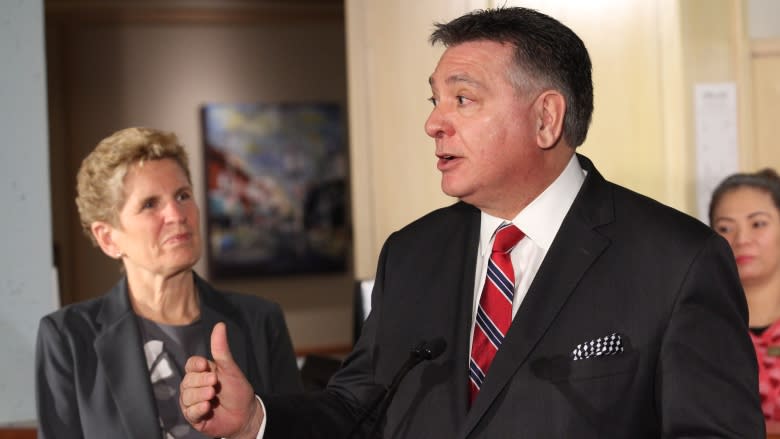Ontario's parties offer different visions on corporate tax rate
Ontario's main political parties are staking out sharply different ground on just how much tax big businesses should pay.
Doug Ford's Progressive Conservatives are promising to lower the corporate tax rate if they win the provincial election on June 7. The New Democrats, led by Andrea Horwath, want to raise corporate taxes, while Kathleen Wynne's Liberals are proposing no change.
The divisions mean the corporate tax rate could become a central election issue. Polling suggests many Ontarians feel they are personally struggling to get by, even though the provincial economy is thriving and business profits keep hitting record highs.
Ontario's current corporate tax rate is 11.5 per cent, which is lower than every other province. Ford proposes cutting that to 10.5 per cent.
"Ontario is not competitive any longer," Ford said Thursday at a news conference in Toronto. "We're driving companies out of this province."
"You see these small companies struggling, laying people off," he said. "They need a little relief and that's how you attract businesses."
However, Ford's proposed tax cut would not actually help small companies. Small businesses in Ontario (with less than $10 million in capital) pay tax at the much lower rate of 3.5 per cent on their first $500,000 in annual profits. That rate was 4.5 per cent until the Liberal government reduced it last fall. None of the parties has promised to cut it any further.
Ontario's corporate tax revenue was $15.8 billion this past year, and is forecast to be $15.1 billion in 2018-19, so the proposed cut by the PCs could cost the treasury roughly $1.3 billion annually.
Ford's proposal would give "a $1.3 billion payout to some of the biggest businesses in this province," said Economic Development Minister Steven Del Duca.
- NDP unveils election platform, with day care plan, tax hikes on the wealthy
"We see now clearly whose side he's on," Del Duca told reporters Thursday. "To put more money into the pockets of big business, and to deny those who are working hard to get through their daily lives, I think that clearly illustrates what Doug Ford's values are."
Ford would halt the planned hike in the minimum wage to $15 an hour next year. Instead, he is promising to rebate all provincial income tax paid by minimum wage earners, a move that would give a full-time worker about $700 less take-home pay than the wage hike.
Among the three main parties, the only one that would raise corporate taxes is the NDP. The New Democrats propose boosting the rate to 13 per cent.
"For too long, Liberal and Conservative premiers have squandered billions in corporate tax giveaways," Horwath said in a speech this week at the unveiling of her campaign platform. "We will make sure that the most profitable corporations and the wealthiest people start paying their fair share."
The NDP projects the tax hike would bring in $2.1 billion in annual additional revenue by 2021.
After Ford made his promise to cut corporate taxes, Horwath issued a statement saying it "showed Ontarians exactly where his priorities lay and it's not with everyday families and working people."
Ford's promise prompted questions at his Thursday news conference about how his company, Deco Labels, would benefit from the tax cut if he becomes premier.
"Very little," Ford said. "I don't benefit a penny. Matter of fact, if anything, I'm losing money doing this job, but it's worth it."
The Green Party of Ontario wants to raise corporate taxes by between one and 1.5 percentage points, leader Mike Schreiner told CBC News in a statement. The party would also give small businesses a break by raising the exemption on the employer health tax to $1 million of annual payroll, from its current level of $450,000.





